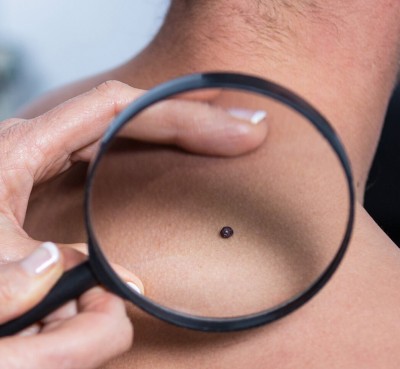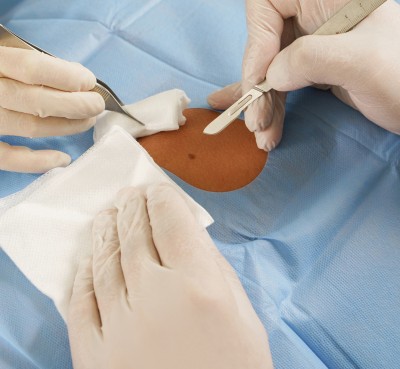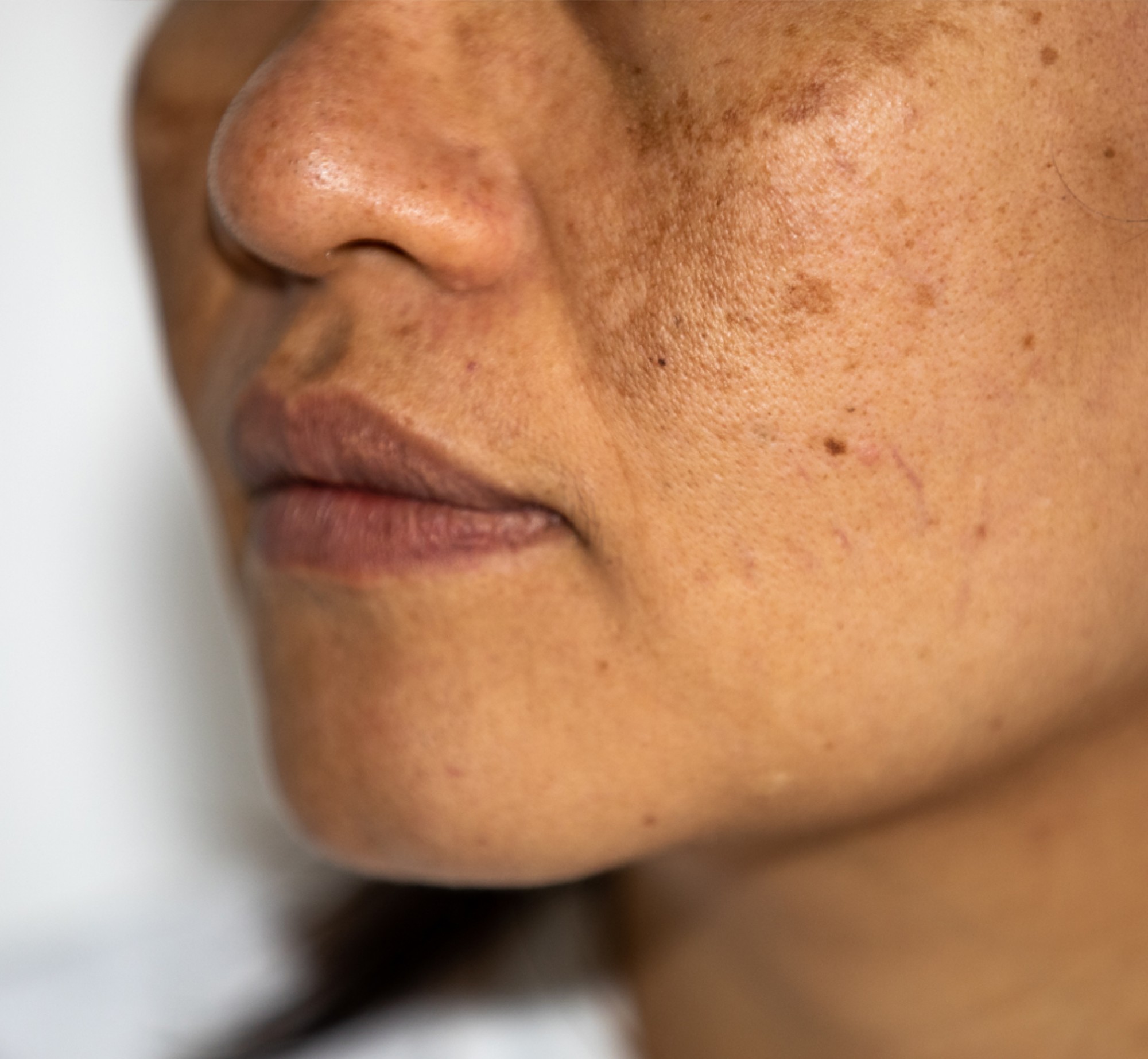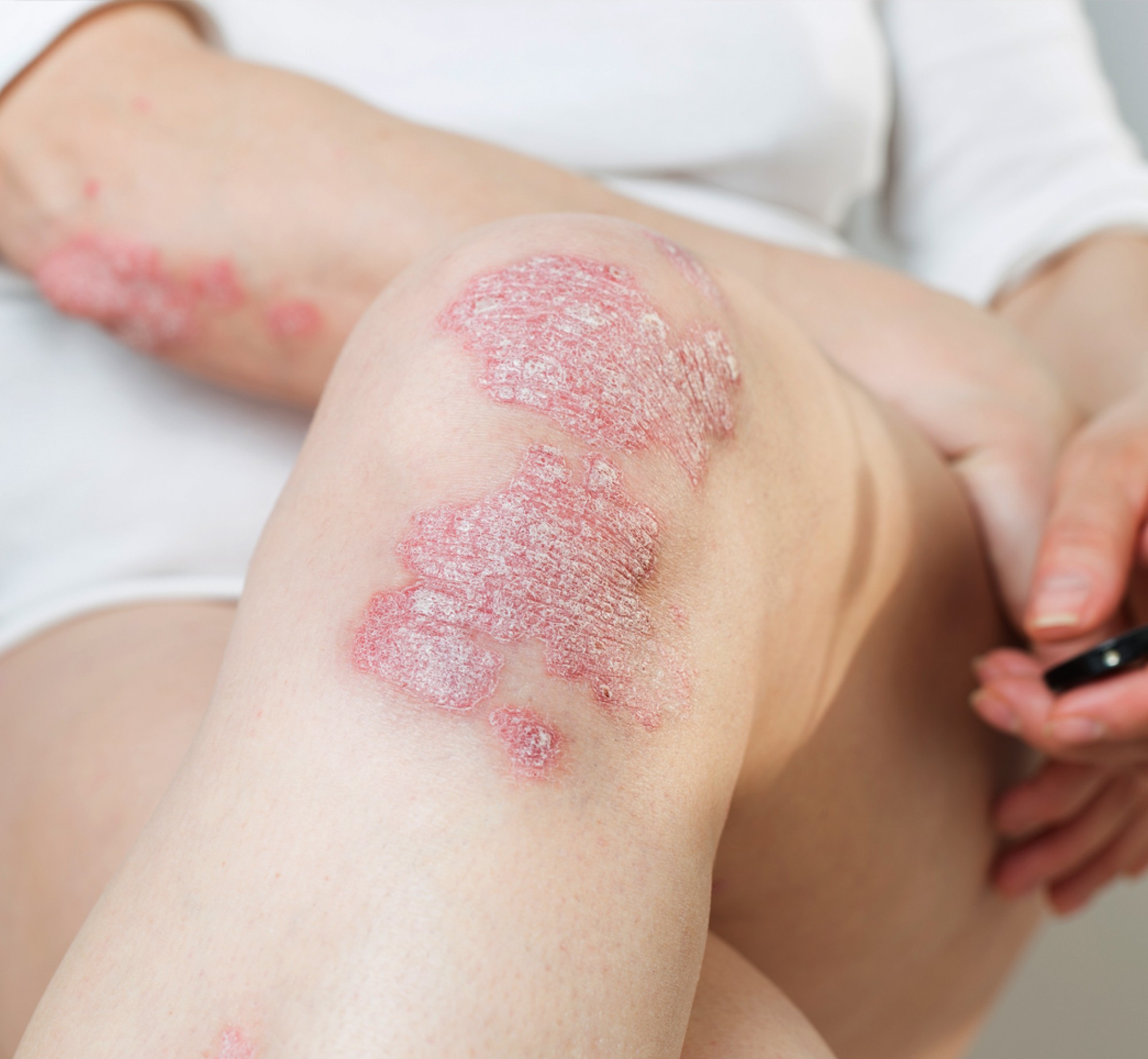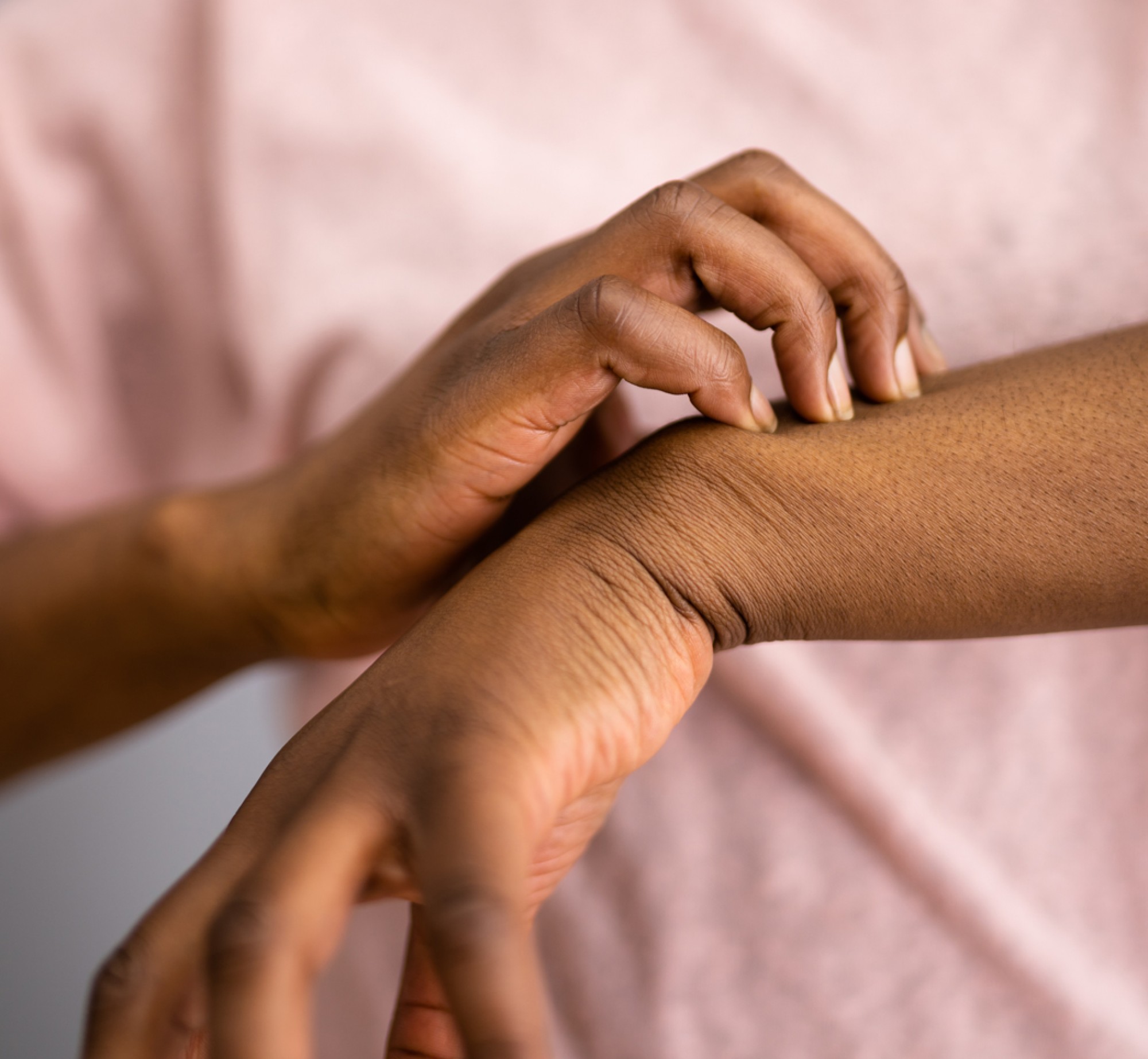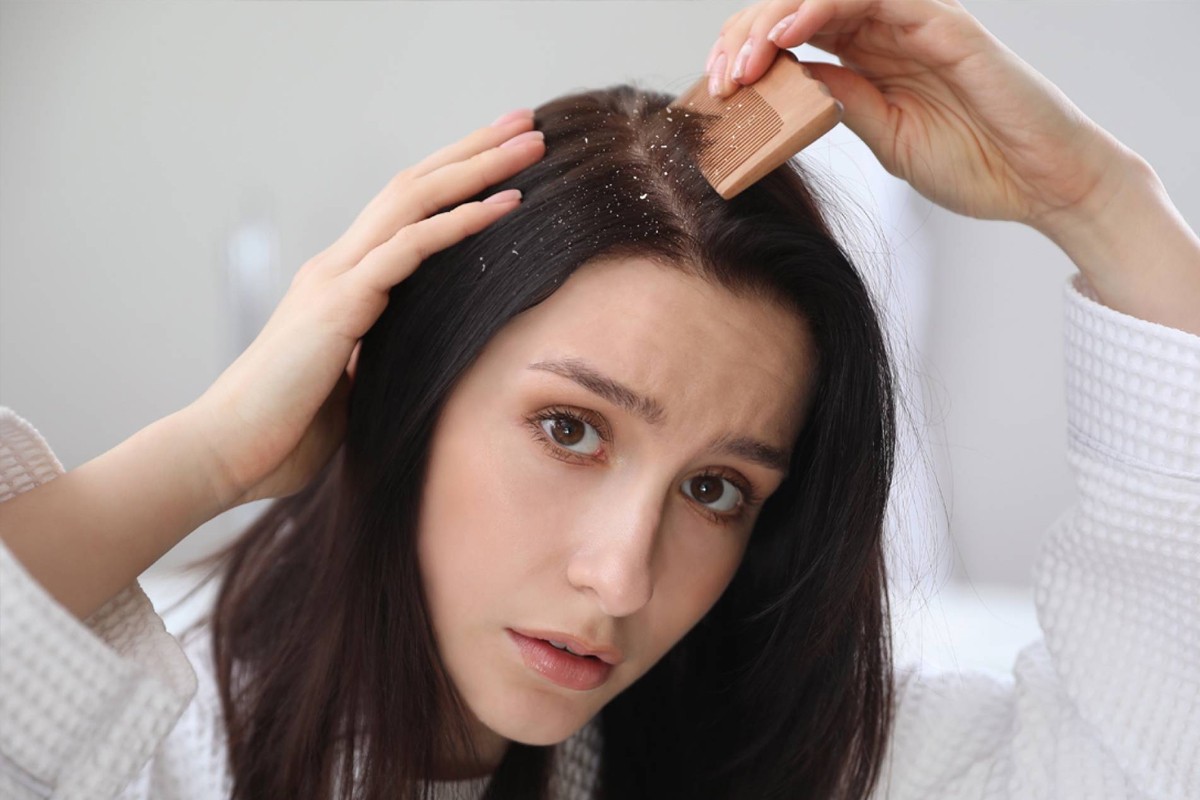The Blog
- Acne
- Maskne
- Melasma
- Pigmentation
- Hyperpigmentation
- Eczema
- Covid-19
- Rashes
- Covid-19 Vaccine
- Fillers
- Scars
- Botox
- Neurotoxins
- Skin
- Rosacea
- Seborrhea
- Anti-aging
- Skin Cancer
- Chemical Peels
- Allergies
- Infection
- Skin Tags
- Medical Care
- Dry Skin
- Skin Care
- Skin Care Tips
- Acne
- psoriasis
- Dandruff
- Impetigo
- Hair
- Intertrigo
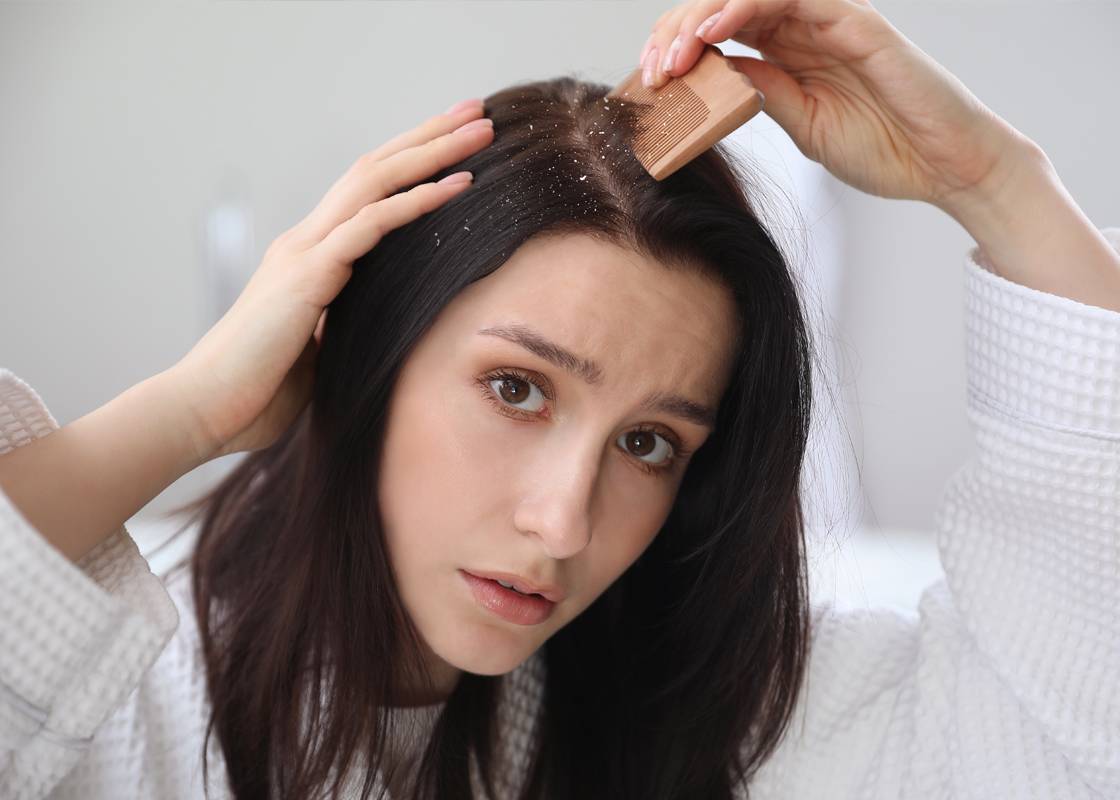
If you've ever stared into the mirror after brushing your hair only to find white flakes on your shoulders, you're not alone—and you're not overreacting. For many people, scalp issues like dandruff or psoriasis can feel frustrating, embarrassing, and even scary. Some patients worry they’re doing something wrong, while others fear they may be facing something more serious than a dry scalp.
The truth is, distinguishing between dandruff and scalp psoriasis isn’t always easy—but understanding the difference is important. Each condition affects your scalp differently, and they require different treatments. Let’s walk through the key signs, causes, and what you can do to manage either one effectively and confidently.
Understanding Dandruff: It’s More Than Just Dry Skin
Many patients are surprised to learn that dandruff isn’t always about dryness. In fact, it’s often caused by an overgrowth of a yeast-like fungus called Malassezia that lives on the scalp. When combined with excess oil production, it can trigger inflammation and flaking. Add stress, cold weather, or certain hair products, and those flakes can quickly multiply.
Common symptoms of dandruff:
- Small white or yellow flakes on the scalp, hair, or clothing
- Itching that is usually mild
- Flakes that worsen in winter or dry climates
The good news? Dandruff is extremely common—affecting up to 50% of the global population—and usually responds well to over-the-counter treatments.
Scalp Psoriasis: When Flaking Goes Deeper
While dandruff is a nuisance, scalp psoriasis can be much more disruptive. Psoriasis is an autoimmune condition that causes skin cells to multiply too quickly, leading to thick, silvery scales and inflamed patches that may extend beyond the hairline. The physical symptoms can be painful, and the emotional toll—especially when treatments aren’t working—can be overwhelming.
Signs that suggest scalp psoriasis:
- Thicker, silvery-white scales that may cling to the scalp
- Red, inflamed, or tender skin
- Persistent itching or burning
- Flakes and plaques that extend to the neck, ears, or forehead
Patients often describe it as “dandruff that won’t go away”—and that’s an important red flag to seek a diagnosis.
Can Dandruff Cause Hair Loss?
While dandruff itself doesn’t directly cause hair loss, it can lead to habits and conditions that do. For example:
- Persistent scratching can damage hair follicles
- Chronic inflammation from untreated dandruff or seborrheic dermatitis can disrupt the hair growth cycle
- Stress—which often worsens dandruff—can trigger temporary hair shedding
Once dandruff is under control, hair typically grows back. The key is addressing the inflammation early.
Does Scalp Psoriasis Lead to Hair Loss?
Scalp psoriasis can contribute to hair loss in several indirect ways:
- Thick plaques can block hair follicles and impair normal growth
- Scratching and picking can damage the scalp and weaken hair at the root
- Inflammation from the condition itself can affect hair health
- Overuse of topical steroids, when not managed carefully, can thin the skin and hair
The good news is that most hair loss from psoriasis is temporary. With proper treatment and inflammation control, the scalp can recover—and so can your hair. However, in severe or long-untreated cases, scarring may lead to permanent loss, making early intervention essential.
How to Soothe and Support a Flaky Scalp: Dermatologist-Backed Tips
If you’re struggling with either condition, there are effective ways to calm the flakes and protect your scalp.
Use the right shampoo
- For dandruff: Try zinc pyrithione, ketoconazole, or selenium sulfide
- For psoriasis: Look for salicylic acid or coal tar-based formulas
Moisturize regularly
A hydrated scalp is less likely to itch or flake. Use dermatologist-approved oils or treatment serums to nourish your skin.
Avoid scratching
It’s not easy—but try to resist. Scratching can make things worse. Use cooling treatments or gentle scalp masks to soothe irritation.
Be gentle with your hair
Avoid tight hairstyles, harsh brushing, and excessive heat styling.
Let your scalp heal without added stress.
Seek professional care
If over-the-counter options haven’t worked, it’s time to see a dermatologist. A personalized treatment plan—whether it's topical therapy, prescription shampoos, or light therapy—can make all the difference.
When Should You See a Dermatologist?
If your flakes are thick, painful, or persistent, or if your scalp is red, tender, or bleeding, don’t wait. Self-treating the wrong condition can delay healing or make symptoms worse. A proper diagnosis is key to choosing the right treatment and protecting both your scalp and hair.
The Takeaway: You Don’t Have to Live with Flakes
Whether you’re dealing with dandruff or scalp psoriasis, there are answers—and there is help. Both conditions are treatable, and most importantly, you don’t have to manage them on your own.
At Springs Dermatology MD, we understand how these scalp conditions affect not just your skin, but your self-esteem and daily life. We’re here to help you find relief, restore your confidence, and support your hair health every step of the way.




